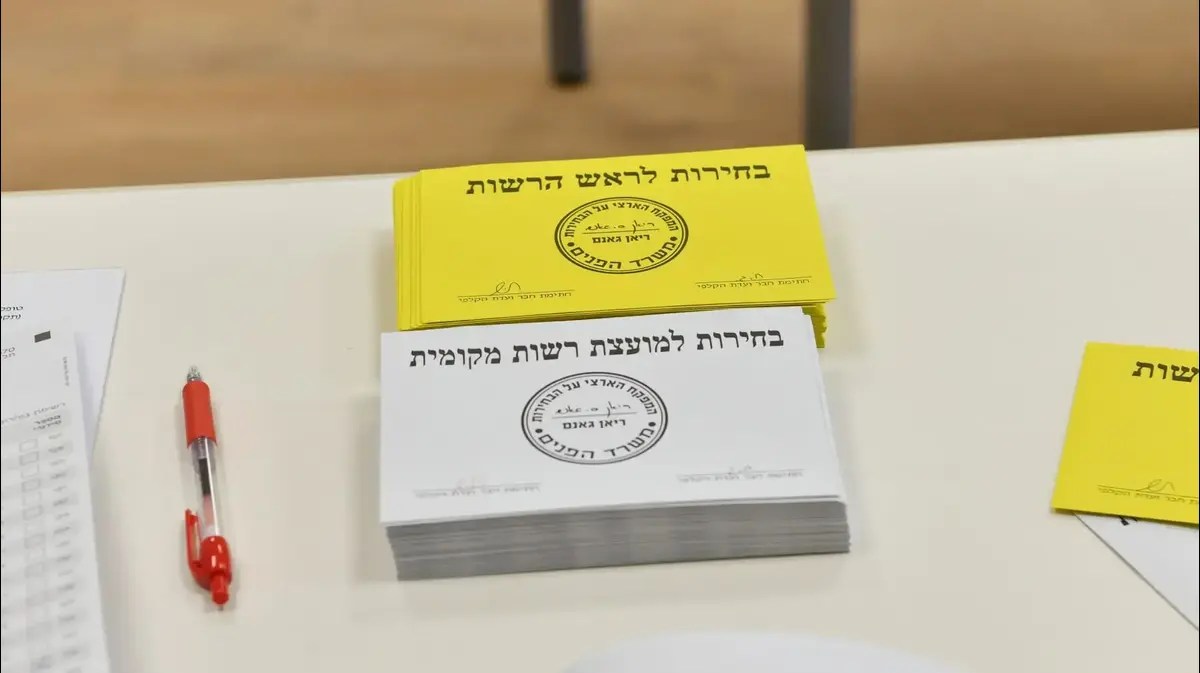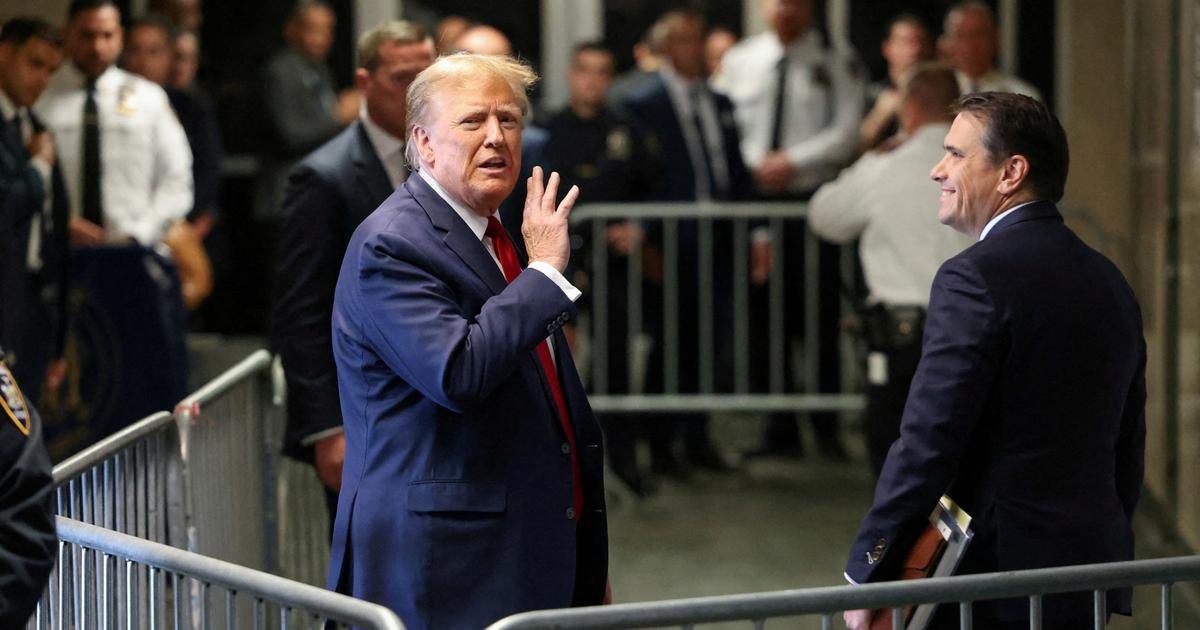Icon: enlarge
75 million have already voted: pre-vote counting in Colorado
Photo: KEVIN MOHATT / REUTERS
America chooses.
In many US states, queues have been forming in front of the polling stations for weeks.
Many Americans want to cast their vote before the actual election day, November 3rd.
"
Early voting
" is the name of the system that nearly 79 million Americans have made use of - more than ever before.
Because in the most competitive US presidential election in generations, which is complicated by a new corona wave and the chaos of the postal service responsible for postal voting, literally every vote is at stake - especially in the decisive swing states, some of which Donald Trump participated in 2016 had won the narrowest possible lead.
In the polls, Trump is currently well behind his challenger Joe Biden.
But he apparently wants to pull all the levers to stay in power - if necessary by suppressing unpopular groups of voters: In many states his Republicans are
suing
to limit
the counting of "
early votes
" and postal votes.
Apparently, they fear many of those pre-cast votes might be for Biden.
Several of these lawsuits have already landed before the Supreme Court, the highest US instance - with specific consequences for the election.
Icon: enlarge
Last instance in electoral disputes: Supreme Court in Washington
Photo: ERIN SCOTT / REUTERS
The legal situation differs from state to state
In the past few days, the US Supreme Court issued three separate orders for Pennsylvania, North Carolina, and Wisconsin - swap states where the outcome could be close.
In Pennsylvania and North Carolina, the courts left the counting periods extended beyond election day.
In Wisconsin, on the other hand, it ordered that only postal ballot papers counted that were received by midnight on Tuesday - all later are therefore invalid.
Why these, at first glance, contradicting resolutions?
This is due, among other things, to the different timing of the lawsuits and the specific legal situation in the respective states - which reveals how opaque the situation can become nationwide.
All three notices were also made without the involvement of Trump-nominated Conservative Judge Amy Coney Barrett, who officially took office on Tuesday.
How the court could from now on judge with its new majority is already becoming apparent.
Icon: enlarge
Patience for Democracy: Early voting in Atlanta
Photo: CHRISTOPHER ALUKA BERRY / REUTERS
All US states, wrote Trump-appointed federal judge Brett Kavanaugh in his statement on Wisconsin, would have to announce a "definitive" counting result on election night on Tuesday "or as soon as possible" in order to dispel "suspected irregularities".
It should not be the case that late votes "overturn the results of an election".
However, past elections have shown that the practice is different: the voting process ends when the polling stations close, but the counting can take a long time afterwards.
"There are no results to 'tip' before all valid votes have been counted," wrote Kavanaugh's liberal court colleague Elena Kagan in her contradiction to Wisconsin.
On the contrary: Nothing is more "suspicious" than stopping the evaluation in the middle just because it strikes midnight.
The Florida cliffhanger
Many US states have set up specially extended postal voting deadlines this time, not least because of the corona crisis.
In California, "
absentee ballots
" postmarked November 3rd are even valid if they arrive by November 20th.
This is nothing new in itself.
In the past, numbers were counted well beyond US election day, also in order to record the votes of troops stationed overseas.
20 years ago, in the punch card drama between George W. Bush and Al Gore in Florida, the cliffhanger dragged on until mid-December before the Supreme Court
stopped
the
recount
and declared Bush the winner - thanks to exactly 537 Sun State votes.
One of the Bush lawyers who successfully fought to have the vote recount because it went more and more in favor of Gore every day was a 35-year-old lawyer named Brett Kavanaugh.
It's not known if Trump considered that when he nominated Kavanaugh as Supreme Court Justice in 2018.
One thing is certain: he will rely on the conservative judges if he just loses the election in November.
Icon: enlarge
Lies about election fraud: Donald Trump in the last TV debate
Photo: JIM BOURG / REUTERS
For weeks, Trump has been spreading conspiracy theories that the electoral system has been manipulated by the Democrats and that postal voting would lead to mass fraud.
All of this has been refuted beyond any doubt, but it serves as the basis for later lawsuits by his lawyers in the event of a foreseeable election defeat.
Trump's hope is that the votes cast personally on election day are for him - a
phenomenon known
as
red mirage
(red illusion) - and that the votes of the postal voters, who are traditionally more in favor of the democratic applicant, only come in afterwards.
Hence the attempt to cut off stragglers.
"Big problems and discrepancies with postal votes everywhere," Trump tweeted again on Monday.
"Must have final result on November 3rd."
Twitter marked this claim as "misleading" and made it clear: "Postal voting is safe."
The parallels in Trump and Kavanaugh's train of thought are striking.
Law professor Richard Hasen told the "New York Times" that Kavanaugh proves a "Trumpian mentality": The Democrats are likely to have a difficult position in the case of election suits before the Supreme Court.
Trump makes no secret of his intentions.
"The fraud will come to the Supreme Court," he boomed before whipping Barrett through in a hurry so that she could judge on his behalf in time.
Conservatives in all instances
But not only the Supreme Court intervenes.
Election disputes are primarily a matter for the individual states, where they are heard by the local courts.
And Trump has also equipped these instances with more and more reliable conservative judges in recent years.
Icon: enlarge
Conservative hope: Amy Coney Barrett sworn in
Photo: JONATHAN ERNST / REUTERS
It is a real revolution that has taken place quietly.
Trump has appointed 220 federal judges since he moved into the White House, along with the three judges on the Supreme Court and 53 on the major appellate courts - an unprecedented number in modern US history.
Only the Democrat Jimmy Carter, who served from 1977 to 1981, had more appointments - and only because in the second half of the 1970s the judicial system was expanded due to the increasing workload.
Trump's army of judges is young, handpicked, tapped for conservative ideology, and appointed for life.
Well positioned to shape US society for generations to come, presidential elections or congressional elections.
The effects of their decisions have long been felt, in environmental protection, abortion, questions of immigration and gun law.
This is also shown by the example of Barbara Lagoa, who Trump had shortlisted to succeed Ruth Bader Ginsburg at the Supreme Court.
The 52-year-old lawyer from Miami, the daughter of Cuban exiles, corresponds to the desired profile: pious Catholic, supporter of "originalism", an arch-conservative legal conception of the constitution.
For a year she has been at the federal appeals court in Atlanta, one of 13 US courts that are hierarchically level with the Supreme Court.
And because he only takes on fewer cases, these federal appeals courts are in fact the highest or last instance.
A ruling by Lagoa's court in September caused a stir.
Two years ago, Florida's citizens voted with a two-thirds majority in a referendum to give convicted offenders back the right to vote after they had served their sentences.
That would affect up to 1.4 million ex-inmates, many of them black, a traditionally Democratic group - and a huge new bloc in Swing State Florida.
But the Republican majority in the state parliament decided that released offenders could only vote once they had paid all fees and penalties in full - an almost insurmountable hurdle for many.
The matter ended up with Lagoa and her colleagues, who declared the restrictive law constitutional by six to four votes.
Five of the six judges in the majority were appointed by Donald Trump.
Icon: The mirror




/cloudfront-eu-central-1.images.arcpublishing.com/prisa/Z54YD2WUPOJCLTTEOIMZQJIPZY.jpg)



